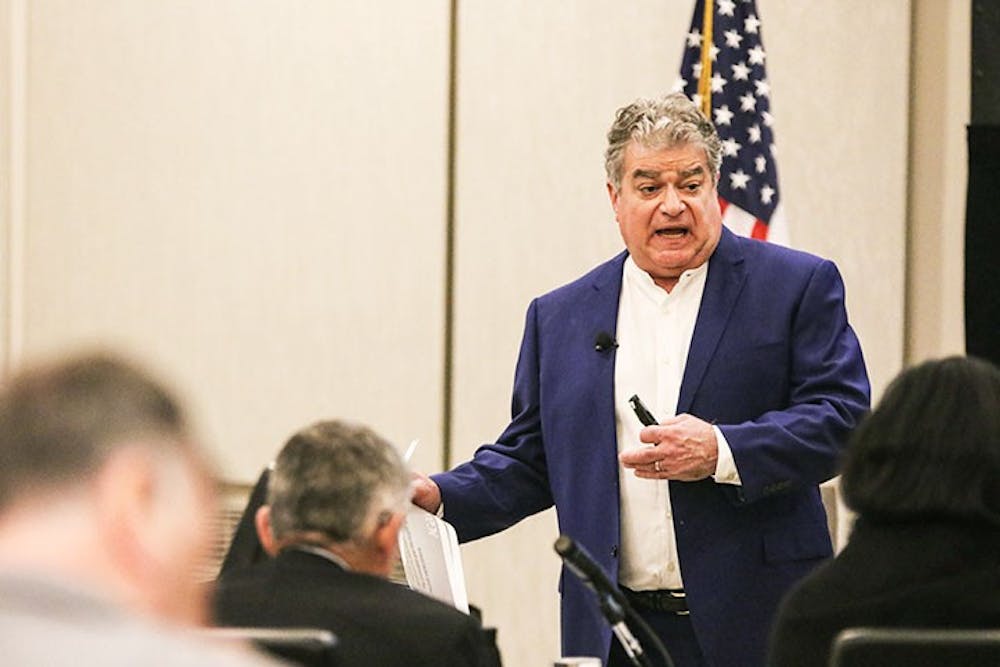Association of Governing Boards (AGB) consultants Richard Legon and Ellen Chaffee, who penned the original report regarding the status of the USC board of trustees, led a discussion at Friday's retreat about how the board should change moving forward.
According to Legon, the board's job is to serve and improve the university.
"Understanding that, and then applying it, can make a board healthier,” he said.
In order to do this, the board would have to shift from its current political culture toward a more fiduciary one, Legon said. However, the process of this shift cannot be done through the passing of legislation.
“The way I think of this reform is, you’ve been playing football, and the governance state is basketball. There’s some new rules, with ways of adapting your thinking about how you go about your business,” Chaffee said.
Legon said, despite being elected, the trustees were not in debt to those who put them in their position, and feeling like they are is a “violation.”
“You take a call from the legislator that voted for you, you are putting yourself in a compromising position,” Legon said. “You are accountable to your stakeholders, internal, external. External means the public, your donors, the alumni, not the people who elected you.”
Board member Molly Spearman said the board should be able to speak or listen to anyone.
“Just because you take a phone call, I disagree there," Spearman said. "Citizens of South Carolina can call us, whether they are elected or not, and give us their opinion."
Diversity of both people and skills on the board of trustees was another topic of discussion.
"You have a limited range of expertise among you ... and yet there are all these other areas that are not represented here in terms of primary expertise, but yet they are very salient," Chaffee said. "What needs to happen is that the governor's committee and the executive committee think it through: 'What do we need to know; what's coming up?'"
Chaffee presented pictures of each board member and said what the board looked like was "not representative." Seventeen of 19 current board members are white males.
Board member Leah Moody said she prioritized skills and abilities over race and sex when it came to looking at diversity in the board of trustees.
"I don't look at diversity just being racially and gender-driven ... You made the assumption as to our backgrounds, because ten lawyers, all ten of us don't practice in the same area," Moody said. "The report said that we lacked experience, but I'd say combined, of the lawyers, we have a plethora of experience in all those areas."
One idea that received generally positive reactions was that of a governance committee, which was considered a “low-hanging fruit” goal according to board member Mary Newton.
Legon said a governance committee is important in allowing for new and older members of the board to become more comfortable and informed with the shift toward a fiduciary style governance.
“Having a really functional, seriously functional, well-laid governance committee doesn’t take all the pain away,” Legon said. “But it sure goes a far way along those lines. It is a wonderful partner to the board chair, and it is a wonderful partner to institutional leadership to have a fully functioning, fully engaged, fully empowered, governance committee to do some or all of these things.”
The board will have the “ultimate authority” going forward with these reforms, deciding for themselves which recommendations to adopt or dismiss.
USC President Bob Caslen said he supports the board and recognizes the need and want for the board to make these changes.
“We in the university and the staff will support [the board] 110%, whatever support we can provide them; whether it's guidance, whether it's feedback, whether it's institutional knowledge, whatever,” Caslen said. "They’re ready to move forward and they’re anxious to make the necessary changes.”

